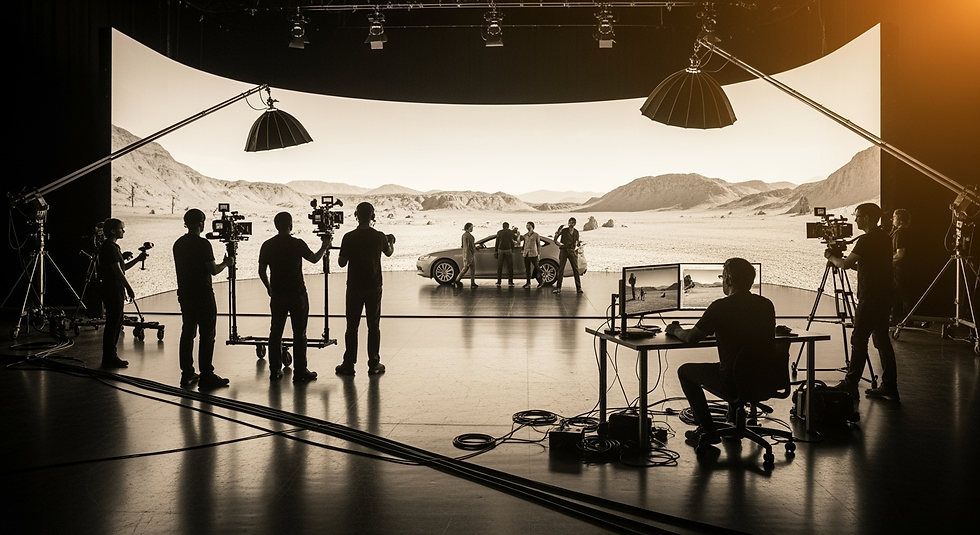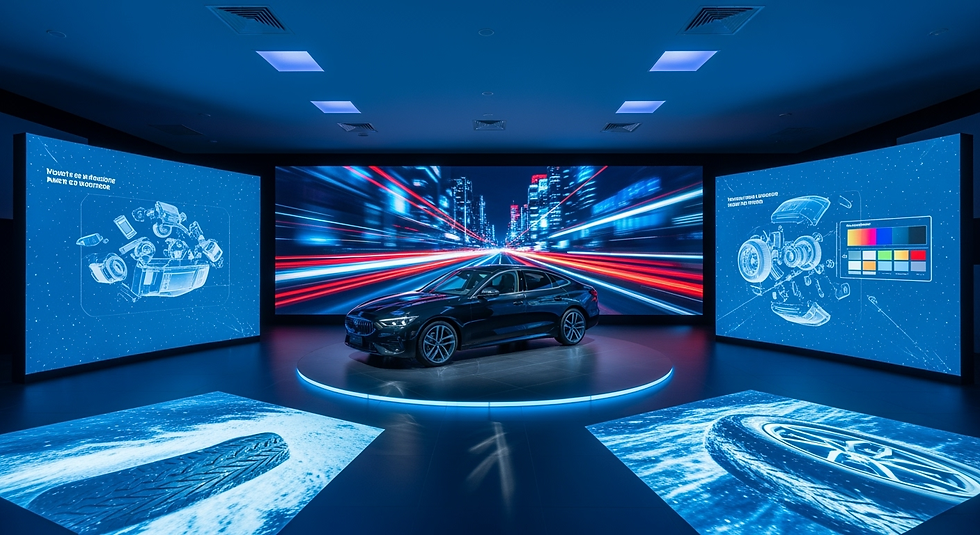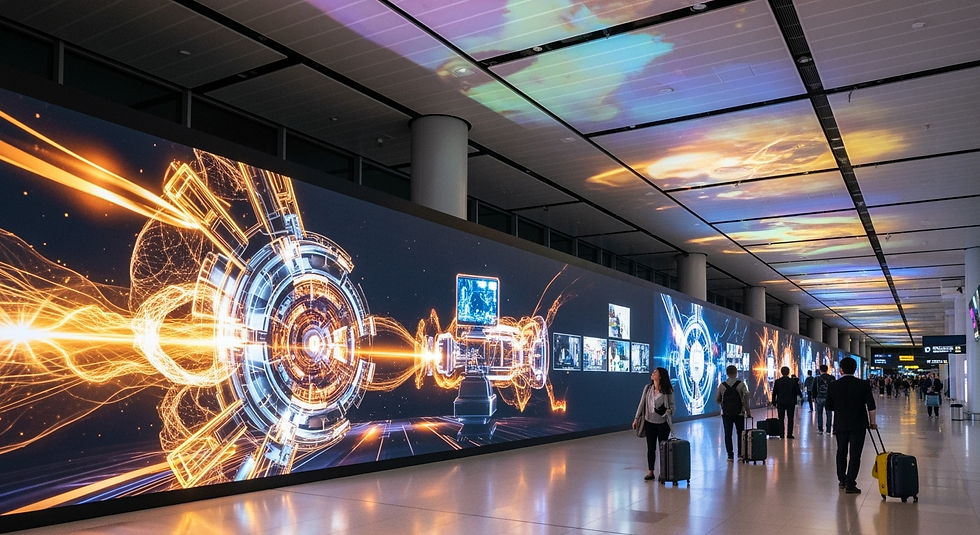LED Volume Stages (Virtual Production)
We build and run LED volume stages for ICVFX, camera tracking, genlock/timecode, calibrated LED walls and real-time environments that light the scene for real. You get fewer location days, faster approvals and consistent looks, with one team from stage design to live service. Permanent or pop-up, engineered for uptime and repeatable results.

We design, integrate and operate LED volume stages for virtual production (ICVFX) that give you creative control and predictable schedules.
Real environments light the talent and product for real, parallax, reflections and shadows in-camera, so you cut location days, dodge weather, and approve shots on set. We handle the full stack: wall/ceiling specification (pixel pitch, nits, scan/refresh, bit-depth), rigging and power, camera/lens tracking, genlock/timecode, color management (ACES-ready), media servers and real-time engines, plus show control so looks and cues are repeatable.
Delivery is end-to-end: stage design and safety, calibration and panel matching, lens profiling, look-dev and environment builds, exposure testing, and production runbooks your crew can actually follow. Modes switch for rehearsal / look-dev / shoot, with monitoring, spares and fast panel swaps to protect uptime.
Permanent stages or seasonal pop-ups, product films, automotive launches, broadcast/keynotes, R&D and training, we tune the footprint to your space and KPIs: fewer location days, faster turnarounds, consistent brand looks, lower post.
Colour calibration & monitoring (ACES, probes)
Disguise/Unreal; Stype/NCAM/Vive Mars; FreeD/OSC/MIDI; DMX/sACN; Genlock/Timecode; SPARC show control; CalMAN/LightSpace
What success looks like
Setup-to-shoot time ↓
Pre-lit looks, calibrated walls and templates reduce setup hours.
Location days ↓
In-camera backgrounds cut travel and weather risk.
Post roto/fix ↓
Final pixels captured on the day minimise cleanup.



Unreal Engine virtual production; nDisplay; Disguise xR; camera tracking; genlock; timecode; ACES colour; dvLED ceiling
Esports & Broadcast; Events & Activations; Arts & Culture (Theatre); Corporate / Experience Centres; Automotive Showrooms; Theme Parks & Attractions
Product launch films with realistic reflections
Broadcast desks & stand-ups on virtual sets
Music/performance sessions on volume
Automotive hero shots with moving parallax
Sensors and Tracking
How do sensors enhance visitor experiences?
They trigger personalized content, track movement and manage flows, making attractions more efficient.
What types of tracking do you use?
Computer vision, RFID, BLE, UWB and motion sensors, chosen by application and budget.
How is data secured?
All analytics are anonymized and stored securely, with compliance to local data laws.
Do sensors require constant calibration?
We specify systems with automated recalibration to reduce operator load.
Can sensors integrate with ticketing or CRM?
Yes. Data flows into ticketing, access or CRM systems to enrich visitor profiles.
Plan your LED volume
Book a 20-minute scoping call. We’ll map scenes, cameras and schedule, then return a stage plan, look templates and a banded estimate.

